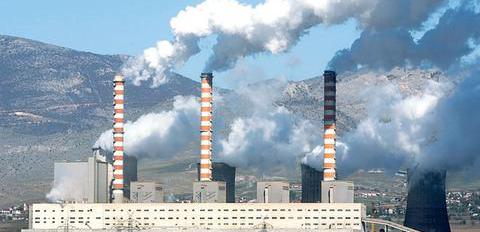Market skepticism over the future course of main power utility PPC’s share price is being fueled by the uncertainty surrounding a plan to split subsidiary firm IPTO, the power grid operator, from its parent company, as well as the overall plan to reduce PPC’s dominant market share. These concerns add to the impact of Greece’s ailing macroeconomic climate on PPC and the difficulties being encountered by the utility in its effort to improve its unpaid receivables record.
Just days ago, IBG, the Investment Bank of Greece, downgraded its rating of PPC, while also underlining a series of unfavorable developments for the utility’s future.
This could also be interpreted as a signal from institutional investors currently linked with PPC and waiting for developments to unfold.
Market officials have expressed doubts about the government’s plan for the IPTO split, describing the entire process as unclear and its schedule as extremely tight.
The IPTO plan which appears to have been approved by the country’s lenders entails selling 49 percent to a strategic investor who, in turn, will transfer 25 percent to the Greek State and maintain 24 percent as well as managerial rights. At the same time, a new IPTO firm will be established, into which the current IPTO’s 51 percent will be transferred. The Greek State will control 51 percent while investors will hold 49 percent of the new IPTO firm.
Based on the procedure’s time schedule, investors will need to have expressed their interest by this June, have their bids appraised by October and finalized by the end of the year.
Certain sources have noted that banks consider the plan as overambitious. Attracting investors under the sale’s current terms will not be easy, it is believed.
According to an independent evaluation, IPTO’s value is estimated at 1.537 billion euros, meaning that a 49 percent share is worth 750 million euros.
Meanwhile, the electricity market’s liberalization and increased competition are gradually reducing PPC’s market share, while the prospects of the utility collecting funds for expansion abroad seem unlikely.
An older plan entailing the part-privatization of PPC, whose would-be breakway unit was locally dubbed “Little PPC”, was expected to rake in 1.5 billion euros for PPC. This plan has now been replaced by the NOME-type auction plan – intended to provide third parties with access to PPC’s low-cost lignite and hydropower sources as part of the bailout-related obligation to help break the utility’s dominance – as well as an additional plan through which PPC will establish partnerships with private-sector investors.
According to IBG, the impact of the NOME auctions on PPC’s EBITDA figure will be worth 25 million euros in 2016 and will reach 115 million euros by 2020, which will add to the burden already being felt by the utility as a result of its unpaid receivables, currently at 2.3 billion euros.
As for the much-discussed PPC partnerships plan, it is still at a premature stage. Real investor interest is well below the level being trumpeted by government officials. This boils down to meaning that if the effort fails, older plans to privatize PPC will return to the negotiating table with even less favorable terms.





